|
A design project of an online platform centered around Chinese international college students in the USA, addressing their needs. |
The Church of Play (CoP) is globally operating secret society that worships play. In this reality game players have the possibility to develop, play and communicate their own rituals and spiritual ideology. During Demo Day we will invite visitors to try out our games and to get in touch with the organization. |
Digital tools exist for creating practically every type of artistic, creative, or communicative digital artifact, including pictures, music, video, and computer animation. This project explores a combined AI-HCI approach to participatory intelligent agents that help amateurs create digital moving image media, such as machinima. 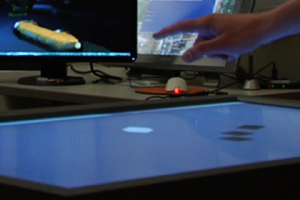 |
In collaboration with colleagues from Malmö University in Malmö Sweden, the AEL is helping to develop a mixed-reality experience that is a narrative of cultural moments from the first half of the twentieth century. The Swedish project, under the direction of Profs. Maria Engerberg and Per Linde, is called Stadsfabula. The AEL is helping to create and test an Argon application that will recognize historic photographs on the walls of a museum space and play the video and audio. 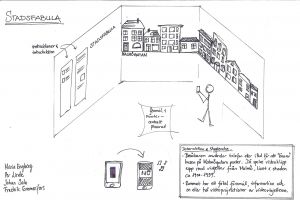 |
|
This research initiative explores the potentials and challenges of civic and participatory media, investigating a set of research questions that probe the relationship between technology, place, storytelling, and community engagement. The aim is to investigate hybrid platforms that inform and engage local communities through the mediation of shared public spaces, digital media, mapping, and storytelling. |
Field study of wearable device implementation in firefighting departments in the Southeast |
ClipLine, a social sharing mobile platform that helps users turn their favorite TV scenes into customized GIFs and instantly share them with their friends and the outside world. Voting up the best GIFs, re-clipping, and following other accounts will also be main features of ClipLine. 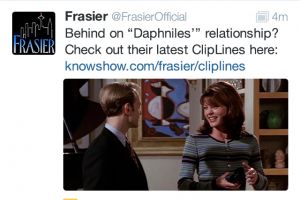 |
Clock ReaderLab: Early detection of symptoms is of critical importance in diagnosing and treating cognitive dysfunction. One important instrument utilized for detecting early signs of cognitive dysfunction is the Clock-Drawing Test. In this test, patients are asked to draw a clock face at a certain time, and are evaluated on how well they perform this task. At present, analysts must individually administer and assess each test a person completes. 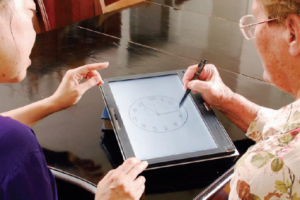 |
|
In this research, we explore how conversational agents, specifically the Google Home Hub, can empower dyads comprised of older adults with MCI and their care partners. 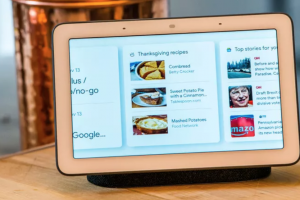 |
In Community Supported Agriculture (CSA), members of a local community invest upfront in local farms before a harvesting season in return for "shares" of weekly produce. This promotes agricultural & economic prosperity for the farmers & a sense of civic community. Today, CSAs have evolved to reach broader customer groups and often lack a sense of community. Through a user-centered approach, we learned that farmers need better platforms to support CSAs while customers need more information transparency to streamline their CSA journey. We designed a CSA portal to build a stronger CSA ecosystem. 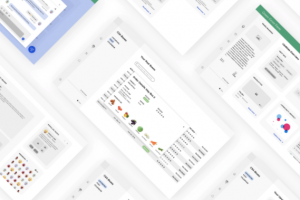 Website: |
We present a demonstration of a level-authoring tool with a co-creative agent informed by knowledge it derived from interactions with human designers. 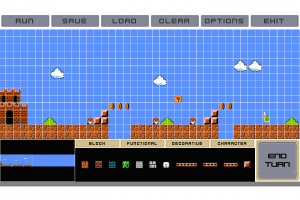 |
To address these challenges in mental health consultation and limitations in accurately monitoring and predicting patients' symptoms, clinicians and HCI researchers have sought new avenues of innovative technology-based solutions, using machine learning, digital health interventions, and passive sensing computing. |
|
CO-OP is an interactive mHealth application that utilizes visual illustrations of everyday illness experiences to investigate how technology can support chronically ill patients and family caregivers' collaborative effort to track and co-create personally meaningful representations of everyday illnesss experiences in non-clinical settings. The system will elicit and probe patients' and family caregivers' observations of illness experiences in relation to everyday activities, and their design input--through a suit of media technology readily available on their mobile device. 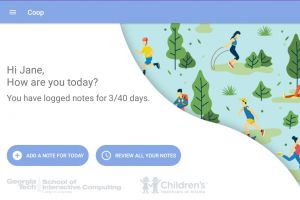 |
Code Crafters is a project that investigates the connection between quilting and computational thinking, via design-based research to develop instructional workshops for an adult population of quilters. 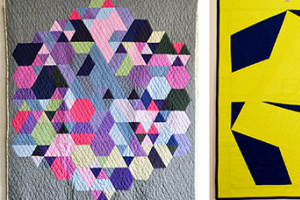 |
The goal of this NASA funded project is to conduct human computer interaction experiments to study how the diminishment of irrelevant visual and auditory information, via Augmented Reality, in a high stress environment can help a user focus more effectively on task performance. Specifically we are studying methods of diminishing and enhancing reality for crew members on the International Space Station that could help them perform complex medical tasks in high stress emergency situations. |


